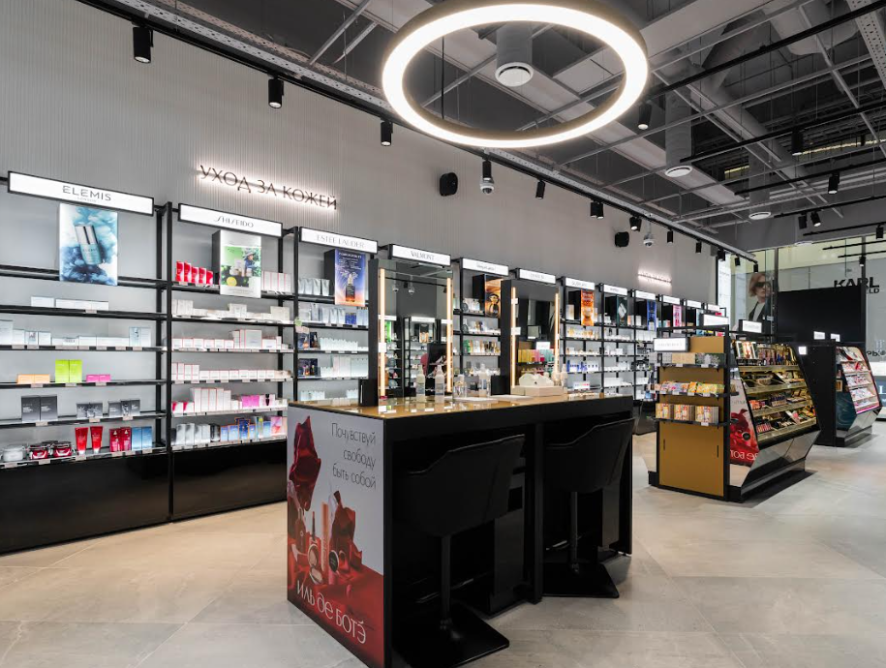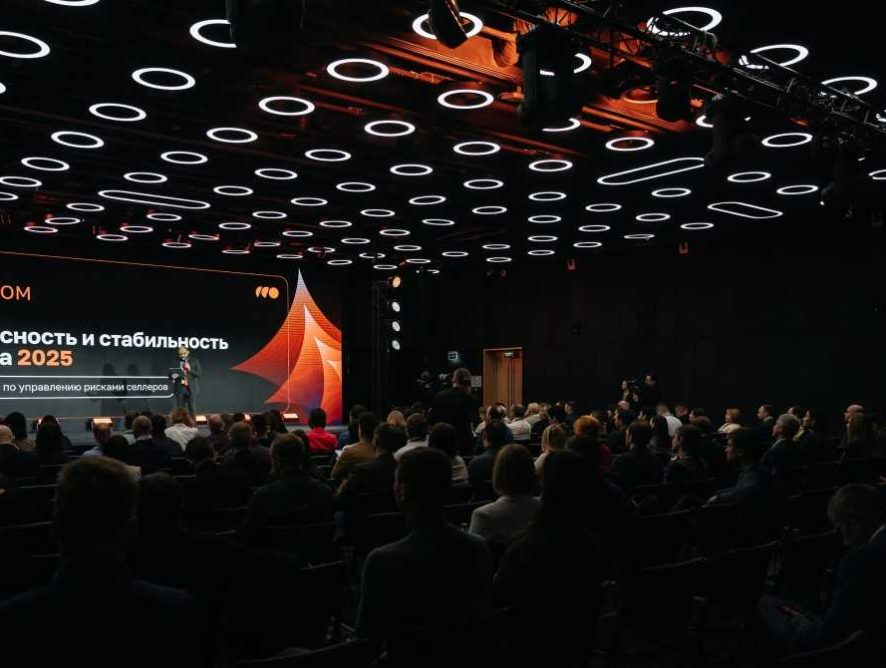In his first interview with the British press since fleeing Russia, mobile phone mogul Yevgeny Chichvarkin talks to Shaun Walker.
London, it seems, has not been kind to Yevgeny Chichvarkin. Once the enfant terrible of the Russian super-rich, the portly figure who trudges into the lobby of a posh Kensington hotel is a far cry from the legend. Until 18 months ago, he was one of the most successful businessmen in Russia – famous for his luxuriant mullet, his outrageous dress sense and his peppering of speeches at drab economic forums with excitable gestures and swearing.
Above all, in a country where most of the ultra-wealthy made their money by snapping up chunks of Soviet-era industry at bargain basement prices, Mr Chichvarkin was known as a supremely canny businessman who built up a vast company starting with just £3,000 of start-up capital in 1997 at the age of 22.
Today, you can’t walk for five minutes in Moscow without passing a branch of his Yevroset mobile phone shops and their yellow hoardings dot every Russian city from the Baltic to the Pacific.
But in the winter of 2008, things started to go wrong for Mr Chichvarkin. One of his deputies was arrested and charged with kidnapping and extortion. Convinced that corrupt bureaucrats wanted to take over his company and were going to arrest him next, he fled to London with his family and has been laying low there ever since.
Russia has charged him with complicity in the kidnapping and put out an international arrest warrant.
Mr Chichvarkin denies all the charges. He has been keeping a low profile and avoiding journalists. But before a key hearing in London on Monday, he agreed to speak to The Independent, in his first interview with the British press since leaving Russia. We meet for breakfast at the Baglioni Hotel, a flashy and expensive venue just around the corner from his Kensington house and deep inside Russian oligarch territory.
He arrives in a pair of designer jeans and a white t-shirt emblazoned with a golden sun. But his mood is far from sunny. It’s difficult to tell how much is the result of a hangover he says he is suffering (some old Muscovite friends stopped by his house the night before) and how much is a general London-induced malaise.
"Nothing," he shrugs, when I ask what he’s been doing since arriving in London. "I sit at home. I’m a house husband. I’ve put on 20 kilograms since I came here."
He has started to go bald and looks older than his 35 years. He likes London, he says, but it’s clear that his heart is still in Russia. "I left because I didn’t want to go to prison for something I hadn’t done and I didn’t want to pay bribes," he explains.
His departure from Moscow in December 2008 was sudden and unexpected. He called a few friends to explain why he’d left and then went dark for several months. Nothing was heard from him until Russian journalists spotted him in June last year at the ballet in Covent Garden.
"My wife and I used to go to the theatre twice a week in Moscow," he says, by way of explanation. "We just got bored of hiding in the house."
Even when the Russian journalists tracked him down in the interval, he refused to comment. He says it was down to a hope – now extinguished – that his case in Russia would be sorted out. "People told me to keep a low profile. They said that if I want to return to Russia I should sit quietly in London; not talk to the press – especially not the British press. So I sat quietly," he recalls. "Others sat quietly and they returned," he continues, referring to Telman Ismailov and Mikhail Gutseriyev, two businessmen who got on the wrong side of the Kremlin and fled, but have made stealthy returns of late. "But I can’t sit quietly any more."
He recently released a video appeal to Russian President Dmitry Medvedev, naming 13 people in the Interior Ministry he says are part of a gang that were determined to steal millions of dollars from Yevroset.
"The Russian people await your decisive measures against corruption in law enforcement agencies," the exile said in his video address to Mr Medvedev, the Houses of Parliament providing a backdrop. "This case is an example of what we are fighting."
Next week, a London court will hear Russia’s extradition case against Mr Chichvarkin and decide whether he can stay in the country. He claims that all the charges against him were trumped up and were a result of officials disliking his anti-corruption statements.
"Different people had different reasons," he says "Some of the siloviki [law enforcement and intelligence officials] just didn’t like the things I said and wanted revenge. Others wanted to steal from me. I shouted as loudly as I could about it and they didn’t like it."
President Medvedev has made fighting corruption a major part of his agenda since taking over from Vladimir Putin in 2008, but few real successes are visible.
Does Mr Chichvarkin think that the current climate of high-level corruption in Russia happens in spite of the best efforts of Mr Medvedev and Mr Putin – now Prime Minister – or is it intrinsic to the system that they have built and nourished?
He pauses, smiles wryly and answers: "I think it happens against the will of Medvedev."
There is always one major elephant in the room with all the Russian businessmen who have fallen out with the powers that be back home and wheel out the democratic rhetoric. Of course, much of what they say about rule of law and corruption in Russia is true, but most people find it hard to believe that the giant business empires that these men built during the 1990s could have been made without successfully navigating this environment.
Does Mr Chichvarkin expect people to believe that he set up a vast consumer network in Russia in the 1990s and early 2000s without having to resort to some fairly unsavoury practices himself? If he threw himself into a ruthless and dangerous game that brought him huge profits – but from which he eventually emerged a loser – why should anybody feel sorry for him?
"Business can’t be dirty; business is clean by definition. It’s the way that politicians treat business that is dirty," he counters. "They were the ones demanding bribes. If I’d paid off the people I was supposed to, I wouldn’t be sitting here with you. I’d be sitting in Cantinetta Antinori, on Denezhny Lane in Moscow."
The already familiar look of sadness mixed with resignation flits across his face, as he namechecks Moscow’s most expensive Italian restaurant. But surely it was also impossible to build up such a large and successful company during the chaotic 1990s without having to deal with the criminal gangs who had fingers in most lucrative business at the time?
"The bandits of the 1990s were modest and decent people, compared to today’s politicians," Mr Chichvarkin says, somewhat dodging the question. "Maybe they sometimes stole businesses but they didn’t destroy them. They were a necessary protection function for businesses because the judiciary and the police weren’t functioning properly.
"Now the power that these people had has been handed over to government officials, but without any of the responsibility. They don’t want to help businesses; they just want to line their pockets."
Earlier this year, he faced another tragedy when his mother Lyudmila died in Moscow. In April, a few days after her sixtieth birthday, she was found dead in her Moscow flat by her cleaner, with a head wound. Police said she fell and hit her head on a table corner and refused to open a criminal investigation. Chichvarkin is convinced it wasn’t an accident, although says he doesn’t know who exactly could have been behind it. He did not return home for her funeral, for fear of being arrested.
In the two years since he left Moscow, he says, he has gone from a committed supporter of the Kremlin to something of an oppositionist.
"Change has to come from the people. But as long as people have enough sausage to eat, they don’t care," he says, mirroring the frustrations of many in Russia’s fractured liberal opposition. But, he says, there is no guaranteeing that the current system will be able to survive forever. "The Russian people sleep for a long time, but when they awaken, it’s scary."
As for his own hopes of returning, he still has a dream – that he’ll be allowed to return to Russia. But for now, he is resigned to life in Britain.
He is thinking of setting up "some kind of shop" in London, although he won’t say what it would sell. "I still want to go back. It’s my homeland. But I don’t want to go back to the kind of country where you can’t even tell the truth to the press."
Three others who fled
Boris Berezovsky
* Berezovsky was one of the most successful businessmen of the 1990s and wielded huge power in the Kremlin.
* He was one of the first and most powerful oligarchs and once Vladimir Putin was in the Kremlin, charges were brought against Berezovsky.
* He fled to London in 2001. The UK has rejected all extradition requests, accepting the charges were politically motivated.
Alexander Litvinenko
* Litvenenko was a former FSB agent and close associate of Berezovsky.
* After being dismissed from the FSB he fled Russia and was granted political asylum in Britain in 2001.
* From London, he continued being a staunch critic of Putin’s government. He died from polonium poisoning in late 2006.
Akhmed Zakayev
* An actor by training, Zakayev was a field commander during the Chechen wars.
* He also served as a culture minister during the brief period when Chechnya gained de facto independence.
* He has lived in Britain since 2002. Russia has accused him of terrorism and sought his extradition, which has always been refused.


